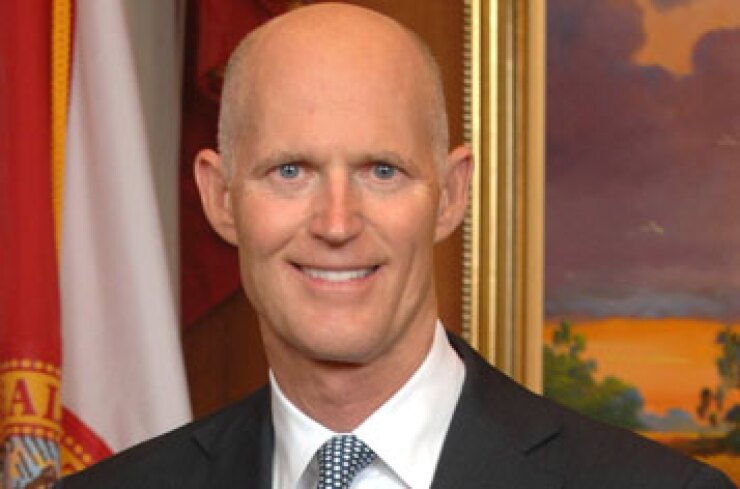
BRADENTON, Fla. - Florida Gov. Rick Scott Wednesday recommended a $74.2 billion state budget for fiscal 2015, and $2.7 billion in bond financing for transportation projects.
Total spending would be about 3% less than the current budget.
However, the 2015 plan includes $27.5 billion for the general fund, which is $1.3 billion or 4.9% higher than this year, mostly due to projected increases in sales tax collections. Florida's budget relies primarily on sales tax revenues since the state has no personal income tax.
Improving revenues, reductions in government spending, and renegotiating contracts are providing opportunities for the state to offer tax cuts, said Scott, a Republican seeking re-election this year.
"Florida's economy is growing, we are on the rebound," he said. "More revenue does not mean we should grow government. Instead, we should grow our businesses. We should grow the hopes and dreams of Florida families."
Branding his proposal the "It's Your Money Tax Cut Budget," Scott wants lawmakers to approve recurring tax cuts of more than $560 million, some of which were tax increases that filled budget gaps in lean years.
Those cuts include $400 million annually to reduce vehicle fees and an estimated $82.5 million for sales tax holidays on the purchase of school and hurricane-related products.
As in previous years, businesses would also benefit with $104 million in reductions to the sales tax on commercial leases, increasing the corporate income tax exemption at a cost of $21.6 million, and reducing corporate filing fees and late penalties at a cost of $33 million.
If his budget is approved by lawmakers it would also include a total of $2.7 billion in bonds, which would be one of the largest authorizations in recent years.
The most debt would be $2.4 billion for the Florida Department of Transportation's massive Interstate 4 expansion and renovation project being accomplished with a public-private partnership. Another $300 million in bonds would be for other FDOT projects.
Scott's budget does not include financing for school construction or purchasing conservation lands for yet another year. However, he is proposing to use $30 million in cash and $40 million from the sale of surplus state-owned land for environmental acquisitions.
The proposal would bring the budget stabilization reserve to $1.1 billion.
Scott also recommends eliminating 1,233 positions, of which about 1,160 are vacant, and he wants $167 million set aside for discretionary bonuses.
Other tax cut proposals are expected to come up during the legislative session, which starts March 4.
One proposal would reduce the sales and use tax on commercial electric usage and another would lift the state sales tax for a weekend purchases of energy-saving appliances.





